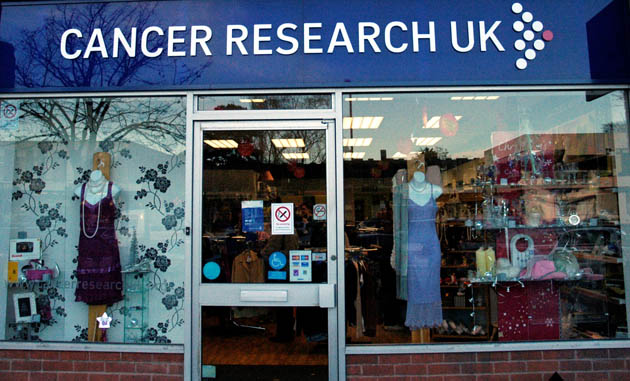There’s a hidden trauma and burnout crisis among fundraising professionals, which has been ‘ignored for too long’, new research has shown.
Research conducted by Irish fundraiser Michelle Reynolds has highlighted a number of factors contributing to stress among fundraisers.
According to her findings, fundraisers feel they ‘can’t say no’ to taking on extra work and are being affected by the perception that mental health issues experienced by fundraisers are ‘nothing’ compared to those experienced by beneficiaries and frontline staff.
The Rogare report, Caring too much: The burnout dilemma faced by fundraisers, and the emotional toll of a fundraising career identifies four key drivers of stress and burnout among fundraisers.
These include fundraisers’ inherent empathy, which ‘opens the door to emotional strain’; their desire to put others’ interests before their own; the pressure to achieve more for less’ and the sense of idealisation that fundraisers should be able to ‘deliver the impossible’.
Reynolds also said fundraisers can often experience the same type of trauma as frontline charity workers.
She said the syndrome, known as ‘secondary vicarious trauma’, results from indirect exposure, such as through photographs and stories, to the real life factors that induce stress.
“Many fundraisers are so committed to their organisation’s mission that the intensity of work feels worth it. But this extra effort often comes at the expense of fundraisers’ mental health and wellbeing,” Reynolds said.
“Charities need to do more to support their fundraisers. While fundraisers often put themselves forward to do more, it is impossible to ignore the concomitant cultural expectation and pressure from organisations and leadership that this is what fundraisers ought to do. In fact, perhaps this has been overlooked for too long.
“Fundraisers need to be empowered and enabled to hold boundaries around workload, to find their individual comfort level around exposure to others’ traumatic experiences, and resist the self-imposed yet seemingly reinforced-by-others belief that they must be ‘always on’ and put everyone else’s needs ahead of their own.”
Rogare’s chair Damian Chapman, who is director of income generation at Money Advice Trust and a trustee of the Chartered Institute of Fundraising, added that burnout is “endemic in fundraising and not an anomaly – it is a silent and devastating crisis in the fundraising profession”.
“The changes we need to put in place to deal with this crisis are not radical; they are the basic protections any profession should provide to those working on the frontlines of social good,” he said.
“Fundraisers are not an infinite resource. We cannot afford to keep losing them to burnout. We owe it to them – not just to keep them in the profession, but to ensure they can thrive within it.”
Caring too much: The burnout dilemma faced by fundraisers, and the emotional toll of a fundraising career is available here.
Latest News
-
Scramble to house 87 people following homelessness charity’s sudden closure
-
Philanthropist hands health charity record £1m donation
-
OSCR’s transparency changes come into force this month
-
Monday movers - 2 March
-
Failures found in health charity’s handling of grieving family’s fundraiser
-
Four in five charity workers fear being replaced by AI
Charity Times video Q&A: In conversation with Hilda Hayo, CEO of Dementia UK
Charity Times editor, Lauren Weymouth, is joined by Dementia UK CEO, Hilda Hayo to discuss why the charity receives such high workplace satisfaction results, what a positive working culture looks like and the importance of lived experience among staff. The pair talk about challenges facing the charity, the impact felt by the pandemic and how it's striving to overcome obstacles and continue to be a highly impactful organisation for anybody affected by dementia.
Charity Times Awards 2023
Mitigating risk and reducing claims

The cost-of-living crisis is impacting charities in a number of ways, including the risks they take. Endsleigh Insurance’s* senior risk management consultant Scott Crichton joins Charity Times to discuss the ramifications of prioritising certain types of risk over others, the financial implications risk can have if not managed properly, and tips for charities to help manage those risks.
* Coming soon… Howden, the new name for Endsleigh.
* Coming soon… Howden, the new name for Endsleigh.
Better Society

© 2021 Perspective Publishing Privacy & Cookies














Recent Stories